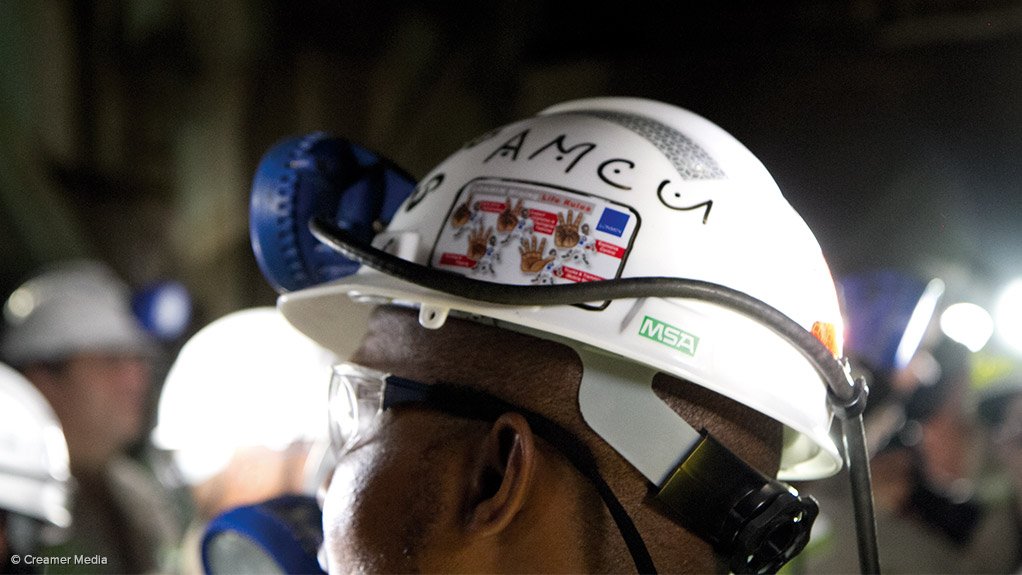CAPE TOWN – The Association of Mineworkers and Construction Union (AMCU) wants to bring Sibanye Gold to a standstill on Wednesday to protest the wage settlement concluded with other unions in October 2015.
AMCU president Joseph Mathunjwa told mineworkers at Driefontein on Sunday that the union would serve its intention to strike on Monday, after a court said it could not protest the three-year wage agreement that the National Union of Mineworkers (NUM), Solidarity and the United Association of South Africa signed with Sibanye.
“Sibanye went ahead to sign an agreement with NUM,” he said, according to a statement. “NUM locked the workers in a R600 agreement, while Sibanye Gold are sitting on R10bn reserves.”
AMCU wants R12 500 a month for its members and is expected to down tools until its demands are met.
“We will put Sibanye Gold to a standstill on Wednesday when we commence with the strike,” said Mathunjwa. “Afternoon shift on Wednesday should not clock in for work.
“We will be waiting at (the) labour court with our advocates,” he said. “We are ready and armed for this battle.”
The Labour Appeal Court on March 24 dismissed AMCU’s application to appeal a court interdict that prevented a strike by a union not representing the majority of employees at the companies.
While AMCU represents 40% of Sibanye, Mathunjwa was adamant that AMCU was the majority at Sibanye Gold. Their court argument was that they should be able to strike at a mining site if it has a majority there, even if it was in a minority at a higher company level.
According to Fiona Leppan, a director in the employment practice at Cliffe Dekker Hofmeyr, the labour court decision in March finds favour with a provision in the Labour Relations Act. This allows collective agreements, concluded outside a bargaining council between the employer and a majority union at the workplace or at enterprise level, to be extended to bind non-unionised employees and any minority unions that are not party to such an agreement. These are known as s23 extensions.
“The court supported the primacy of majority unions who engage in collective bargaining at the workplace,” said Leppan.
According to Leppan, the Labour Court said the test is not whether a union has a majority or particular level of representativity at a specific mine, but focuses on "whether the operations carried out by the employer in different places are 'independent' of one another".
“The Labour Appeal Court went further and held that AMCU's argument undermined collective bargaining and the policy of ‘majoritarianism’, which had been carefully selected by the lawmakers when the Labour Relations Act was first constructed,” said Leppan.
“The fact that s23 limits a minority union's right to strike over wages, once the wage agreement is concluded with the majority union and is extended, was found to be a limitation that is reasonable and justifiable and not in conflict with the constitution.”
Sibanye Gold reported higher production and operating profit for the second half of 2015, with production increasing by 15% to 25 571kg and operating profit increasing by 68% to R4-billion.
Sibanye’s share price last traded 3.39% lower at R54.72.
Edited by: News24Wire
EMAIL THIS ARTICLE SAVE THIS ARTICLE
To subscribe email subscriptions@creamermedia.co.za or click here
To advertise email advertising@creamermedia.co.za or click here













